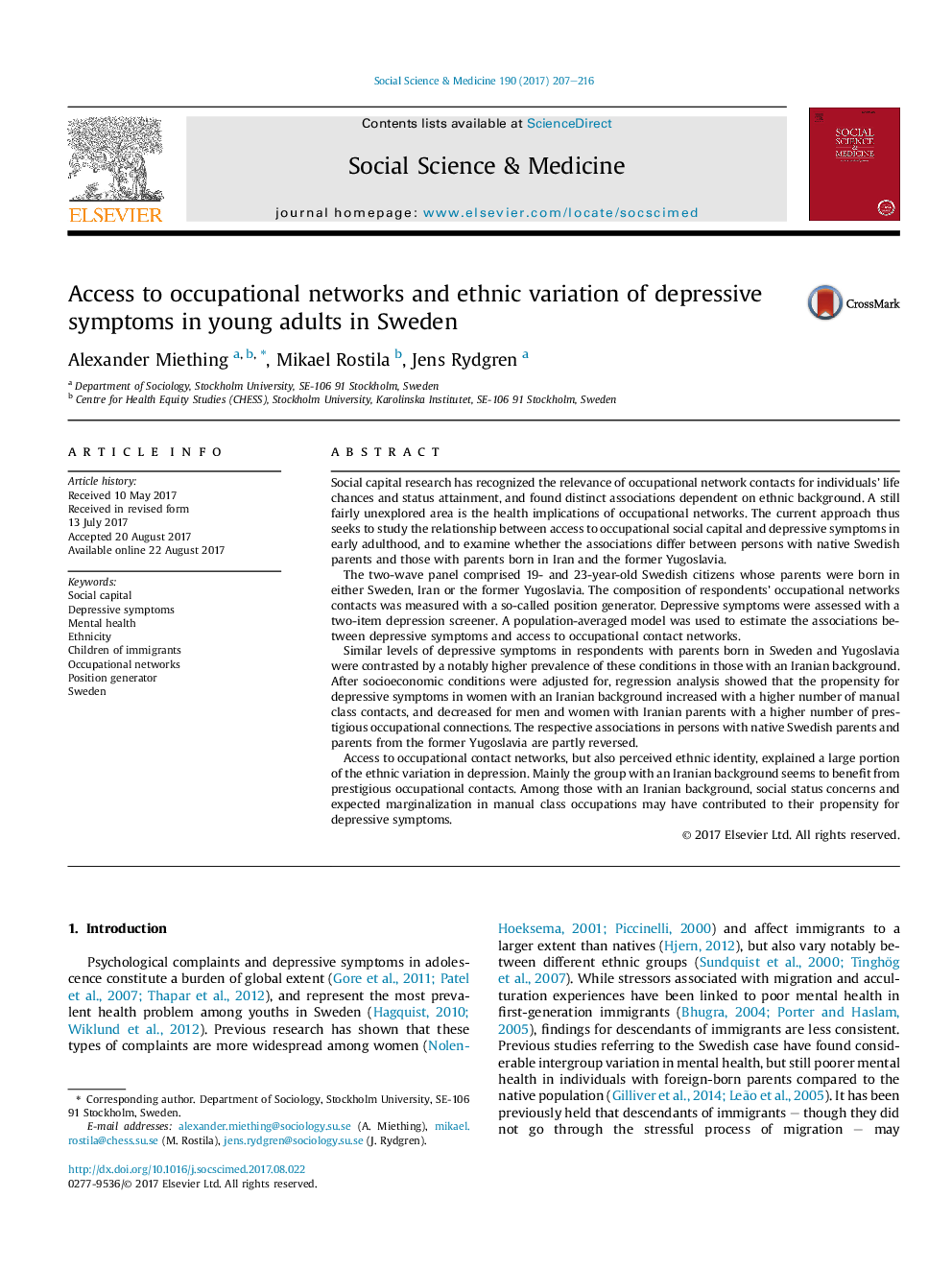| کد مقاله | کد نشریه | سال انتشار | مقاله انگلیسی | نسخه تمام متن |
|---|---|---|---|---|
| 5046335 | 1475979 | 2017 | 10 صفحه PDF | دانلود رایگان |
- Depressive symptoms and occupational social capital vary by ethnicity.
- Occupational social capital is hypothesized as predictor for depressive symptoms.
- Access to occupational contact networks explains the ethnic variation in depression.
- Limited occupational contacts are especially harmful for women with Iranian parents.
- Ethnic identity mediates the associations for those with an Iranian background.
Social capital research has recognized the relevance of occupational network contacts for individuals' life chances and status attainment, and found distinct associations dependent on ethnic background. A still fairly unexplored area is the health implications of occupational networks. The current approach thus seeks to study the relationship between access to occupational social capital and depressive symptoms in early adulthood, and to examine whether the associations differ between persons with native Swedish parents and those with parents born in Iran and the former Yugoslavia.The two-wave panel comprised 19- and 23-year-old Swedish citizens whose parents were born in either Sweden, Iran or the former Yugoslavia. The composition of respondents' occupational networks contacts was measured with a so-called position generator. Depressive symptoms were assessed with a two-item depression screener. A population-averaged model was used to estimate the associations between depressive symptoms and access to occupational contact networks.Similar levels of depressive symptoms in respondents with parents born in Sweden and Yugoslavia were contrasted by a notably higher prevalence of these conditions in those with an Iranian background. After socioeconomic conditions were adjusted for, regression analysis showed that the propensity for depressive symptoms in women with an Iranian background increased with a higher number of manual class contacts, and decreased for men and women with Iranian parents with a higher number of prestigious occupational connections. The respective associations in persons with native Swedish parents and parents from the former Yugoslavia are partly reversed.Access to occupational contact networks, but also perceived ethnic identity, explained a large portion of the ethnic variation in depression. Mainly the group with an Iranian background seems to benefit from prestigious occupational contacts. Among those with an Iranian background, social status concerns and expected marginalization in manual class occupations may have contributed to their propensity for depressive symptoms.
Journal: Social Science & Medicine - Volume 190, October 2017, Pages 207-216
